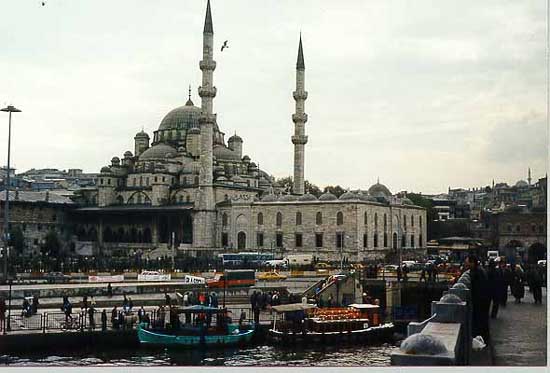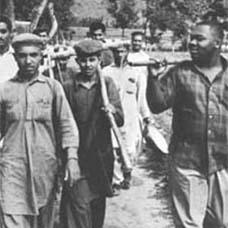January 1, 2005: Headlines: COS - Turkey: Intelligence Issues: Kurds: World Affairs Journal: Although many present-day U.S. academic experts on Turkey first entered the field as Peace Corps volunteers, by the fall of 1970 the Peace Corps program in Turkey had come to a practical end
Peace Corps Online:
Directory:
Turkey:
Peace Corps Turkey :
The Peace Corps in Turkey:
January 1, 2005: Headlines: COS - Turkey: Intelligence Issues: Kurds: World Affairs Journal: Although many present-day U.S. academic experts on Turkey first entered the field as Peace Corps volunteers, by the fall of 1970 the Peace Corps program in Turkey had come to a practical end
Although many present-day U.S. academic experts on Turkey first entered the field as Peace Corps volunteers, by the fall of 1970 the Peace Corps program in Turkey had come to a practical end

Although many present-day U.S. academic experts on Turkey first entered the field as Peace Corps volunteers, by the fall of 1970 the Peace Corps program in Turkey had come to a practical end
THE U.S.-TURKISH ALLIANCE IN DISARRAY
Jan 1, 2005
World Affairs Journal
by Michael M. Gunter
During the late 1940s, the Truman Doctrine and the Marshall Plan brought U.S. military and economic aid to Turkey to help it withstand Soviet encroachments. For its part, Turkey proved to be a particularly brave and valuable ally of the United States during the Korean War (1950-53). Thus, their shared geopolitical interests paved the way for a mutually valuable strategic alliance that was formalized when Turkey joined the North Atlantic Treaty Organization (NATO) in 1952 and began to anchor the alliance's southeastern flank containing Soviet communist expansion. The United States also began to hold Turkey in high esteem as a secular democratic Muslim state offering an important model for other states in the geostrategically important Middle East.
Turkey continued to receive valuable U.S. economic and military aid. Despite their great national differences, the United States and Turkey became staunch allies following World War II.
Even with the end of the cold war, the United States continued to tout Turkey's significance as a strategic ally helping to bring stability to the former Yugoslavia and Somalia, while combating terrorism and political threats from such rogue states as Iraq, Iran, Afghanistan, and Syria. Turkey's failure to support the U.S.- northern front in the war to overthrow Saddam Hussein in 2003, however, has called into question the future of its alliance with the United States.
The purpose of this article is to analyze whether this signals the end of the long-standing U.S.-Turkish alliance. Before tackling this question, however, it would be useful to review briefly some of the more pertinent theoretical literature on alliance formation and termination, the heyday of the U.S.-Turkish alliance, and earlier alliance problems between the two.
[Excerpt]
By the mid-1960s, allegations began that U.S. Peace Corps volunteers in eastern Turkey were seeking information about the Kurds for the CIA. The Turkish Foreign Ministry eventually decided to terminate the Peace Corps's village development program. Although many present-day U.S. academic experts on Turkey first entered the field as Peace Corps volunteers, by the fall of 1970 the Peace Corps program in Turkey had come to a practical end.
During the same era, the forged Tunckanat documents purported to be communications from a Turkish agent to his chief in the CIA asking for U.S. cooperation in purging the Turkish military and government bureaucracy of those who were disloyal to the Turkish government of that day. Yet another conspiracy theory, the so- called Prometheus Plan, supposedly involved the CIA in the Greek military coup of April 1967. When Robert Komer, a former CIA analyst who had served in Vietnam, was appointed U.S. ambassador to Turkey in November 1968, conspiracy theorists had yet another field day. A riot broke out at the leftist-oriented Middle East Technical University in Ankara when Komer visited the campus in January 1969.
When this story was posted in January 2005, this was on the front page of PCOL:
 | Ask Not
As our country prepares for the inauguration of a President, we remember one of the greatest speeches of the 20th century and how his words inspired us. "And so, my fellow Americans: ask not what your country can do for you--ask what you can do for your country. My fellow citizens of the world: ask not what America will do for you, but what together we can do for the freedom of man." |
 | Latest: RPCVs and Peace Corps provide aid
Peace Corps made an appeal last week to all Thailand RPCV's to consider serving again through the Crisis Corps and more than 30 RPCVs have responded so far. RPCVs: Read what an RPCV-led NGO is doing about the crisis an how one RPCV is headed for Sri Lanka to help a nation he grew to love. Question: Is Crisis Corps going to send RPCVs to India, Indonesia and nine other countries that need help? |
 | The World's Broken Promise to our Children
Former Director Carol Bellamy, now head of Unicef, says that the appalling conditions endured today by half the world's children speak to a broken promise. Too many governments are doing worse than neglecting children -- they are making deliberate, informed choices that hurt children. Read her op-ed and Unicef's report on the State of the World's Children 2005. |
 | Our debt to Bill Moyers
Former Peace Corps Deputy Director Bill Moyers leaves PBS next week to begin writing his memoir of Lyndon Baines Johnson. Read what Moyers says about journalism under fire, the value of a free press, and the yearning for democracy. "We have got to nurture the spirit of independent journalism in this country," he warns, "or we'll not save capitalism from its own excesses, and we'll not save democracy from its own inertia." |
 | Is Gaddi Leaving?
Rumors are swirling that Peace Corps Director Vasquez may be leaving the administration. We think Director Vasquez has been doing a good job and if he decides to stay to the end of the administration, he could possibly have the same sort of impact as a Loret Ruppe Miller. If Vasquez has decided to leave, then Bob Taft, Peter McPherson, Chris Shays, or Jody Olsen would be good candidates to run the agency. Latest: For the record, Peace Corps has no comment on the rumors. |
 | The Birth of the Peace Corps
UMBC's Shriver Center and the Maryland Returned Volunteers hosted Scott Stossel, biographer of Sargent Shriver, who spoke on the Birth of the Peace Corps. This is the second annual Peace Corps History series - last year's speaker was Peace Corps Director Jack Vaughn. |
Read the stories and leave your comments.

Some postings on Peace Corps Online are provided to the individual members of this group without permission of the copyright owner for the non-profit purposes of criticism, comment, education, scholarship, and research under the "Fair Use" provisions of U.S. Government copyright laws and they may not be distributed further without permission of the copyright owner. Peace Corps Online does not vouch for the accuracy of the content of the postings, which is the sole responsibility of the copyright holder.
Story Source: World Affairs Journal
This story has been posted in the following forums: : Headlines; COS - Turkey; Intelligence Issues; Kurds
PCOL16258
59












